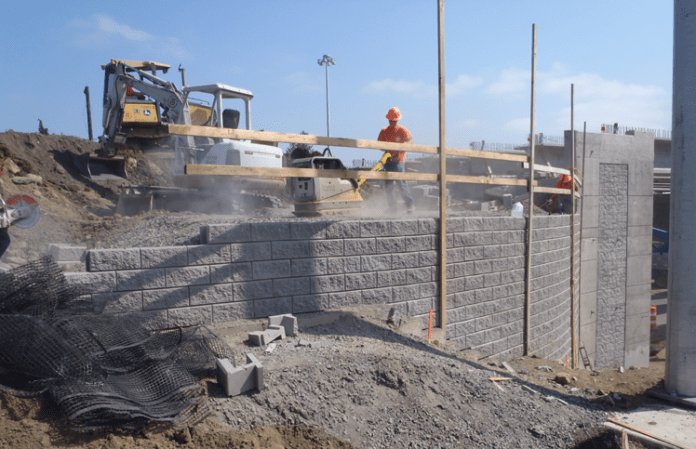Formed in 1993, Identity Clark County’s mission is to “assemble and focus corporate leadership and investment in a shared community agenda for economic expansion and vitality.” In the last 20+ years, ICC has been instrumental in helping establish several important community assets, including the Washington State University Vancouver campus and the Hilton.
On November 4, ICC launched a new business leaders’ forum called Exploring Our Vitality. The first meeting, attended by more than 150 business people, celebrated the many assets of Clark County and began a collaborative process to advance economic expansion.
John McKibbin, ICC president, said the forum used the lens of “land here/live here/learn here” to enumerate what is already good about Clark County.
“We have dirt; good regulations, work environment and work force; and an unbeatable lifestyle,” said McKibbin. “Our education system – we’ve got it in spades, with excellent K-12 and post-secondary options, schools for the blind and deaf, outstanding trade schools like Arch Miller’s International Air Academy and Culinary Institute, and skill centers.”
The new forum, said McKibbin, will help identify what needs to happen next and how to do it. The forum will continue with every-other-month meetings, starting in late January 2016. McKibbin said business leaders are encouraged to participate in these meetings, to help “create the next series of initiatives.” ICC’s Clark Land and Innovation Corridor (CLIC) team will take the forum’s input and put the plan into action, helping Clark County reach its full economic potential.
Besides the new forum, several other issues are at the top of ICC’s list of concerns:
Transportation package
ICC lobbied diligently for the statewide transportation package, signed into law by the Governor in July. ICC’s support for the package centered on job creation and freight mobility. In Clark County, said McKibbin, the monies will fund numerous projects, including the following:
- Upgrading the Mill Plain/I-5 interchange for better freight mobility
- Improving the 109th Street/I-5 interchange near the Clark County Fairgrounds
- Installing a railroad overpass on Union Street into Ridgefield’s port, which will open up access to 44 shovel-ready acres
- Enhancing SR-14 in Washougal
McKibbin said that the transportation package was “broadly supported by Clark County governments and private sector leaders such as the Columbia River Economic Development Council, Greater Vancouver Chamber of Commerce and ICC.”
Southwest Washington Freight and Commerce Task Force (SW FACT)
The Port of Vancouver has approached ICC with a proposal to establish an alliance of businesses and the ports of Clark County to advocate for freight and commerce mobility projects. The purpose of the alliance is to advance local infrastructure projects that affect freight and commerce in and out of the three port areas. At-grade railroad crossings and first mile in/out of ports would be targeted projects. Additional discussions have centered on safety issues at railroad crossings and rail transport in general. The effect of the alliance is to build regional consensus around priorities and then advocate for projects by pursuing highly targeted federal and state dollars. A similar effort in the Puget Sound area has helped attract more than $600 million in investments over 15 years. ICC formed and leads SW FACT which has more than 70 endorsers for its prioritized project agenda.
I-5 Bridge
ICC is working on the generation of “path forward” language to “get the conversation started again in a positive way.”
“Just because the Columbia River Crossing project failed doesn’t mean the problem has gone away – it has gotten worse,” said McKibbin.
He said that “citizens are noticing increased traffic weekly,” because there are more trucks on the road since the Port of Portland lost a large cargo container contract; now containers go out on trucks instead of ships, heading to the Tacoma/Seattle area.
ICC is “working quietly” with parties on both sides of the river, building on what the CRC already completed.
“It’s the elephant in the room – the I-5 Bridge comes up in every conversation about economic development,” McKibbin said. “The aging I-5 Bridge remains the single largest unresolved transportation issue facing Clark County.”
Ongoing challenges
According to McKibbin, the biggest challenge facing Clark County is “to return to our successful collaborative blueprint of achieving large initiatives and identify exactly what needs to be done.”
This approach, he said, will smooth the way for solving challenges such as the I-5 Bridge and other issues that may arise.
What’s the diff?
Identity Clark County president John McKibbin said that he is frequently asked how ICC differs from the Columbia River Economic Development Council and the Greater Vancouver Chamber of Commerce.
“Each organization plays a distinct role,” said McKibbin.
The Chamber of Commerce, he continued, focuses on business-to-business interactions, expanding local business opportunities and giving business tools to succeed. The CREDC works to bring new businesses to the area and helps existing businesses grow through job development.
ICC, McKibbin said, “sets the table for the success of both the Chamber of Commerce and the CREDC, and the community as a whole.”
Another major difference is that the ICC receives no public funding and is the only local business advocacy organization that retains a lobbyist in Olympia.
“We totally funded by private sector investment dollars, which allows us to be a spark plug and innovator in the community,” said McKibbin. “We are working to building a place where everybody can live, work and play.”









